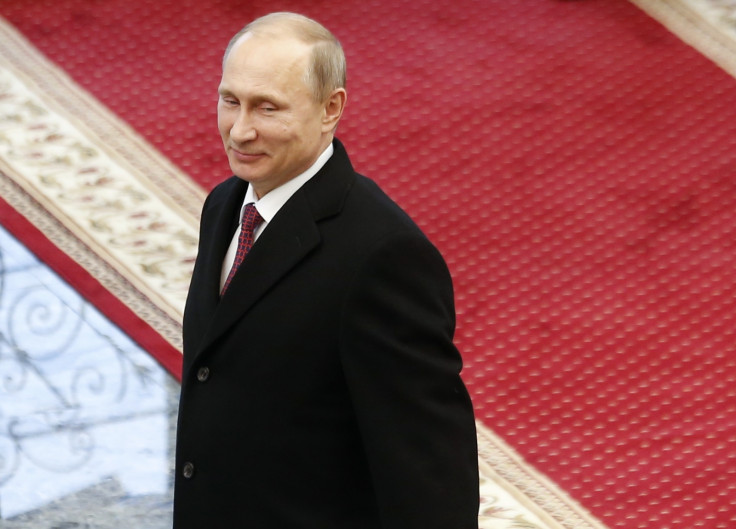Ukraine ceasefire: Putin and Poroshenko disagree over autonomy of separatist regions

Disagreement on the core issue of the degree of autonomy that is to be enjoyed by the restive eastern Ukrainian regions remains, despite the announcement of a comprehensive peace deal struck by the leaders of Russia, Ukraine, France and Germany in Minsk.
Russian President Vladimir Putin said the ceasefire deal envisages a special status for the rebel regions of Donetsk and Lugansk.
"It was not the best night in my life but the morning, I think, it is good because we have managed to agree on the main things despite all the difficulties of the negotiations," Putin said emerging from a marathon 16-hour talks.
However his Ukrainian counterpart Petro Poroshenko swiftly denied that an agreement on the federalisation of the country, or even autonomy to the breakaway region, was reached.
Another unresolved point was the demarcation line separating territories held by Russian-backed rebels from those under Kiev's control.
Notably, Putin said that he and Poroshenko disagreed on assessing the situation in the key flashpoint of the government-controlled town of Debaltseve, a strategic transport hub between the Donetsk and Lugansk that has been the focus of intense fighting in recent weeks.
The Russian president said that the separatists had surrounded Kiev forces there and expected them to surrender, while Ukraine disagrees with that.
"We were presented with various unacceptable conditions of withdrawal and surrender," Poroshenko told reporters after the talks. "We did not agree to any ultimatums and stated firmly that the cease-fire that is announced is unconditional."
The deal brokered by German Chancellor Angela Merkel and French President Francois Hollande, included a ceasefire staring at midnight on Sunday 15 February, the pull back of heavy weapons from the frontline and the withdrawal of all foreign troops and militants from Ukraine — a reference to the alleged presence of Russian troops backing the insurgents.
Ukraine and the West have accused Putin of aiding the rebels with troops and weapons, but this has always been denied by the Kremlin.
Hollande described the deal as a "relief to Europe" adding that he and Merkel will help verify the cease-fire process.
"We came to an agreement, an agreement on a cease-fire and on a global political settlement of the Ukrainian conflict," Hollande said.
"That global settlement will include all issues, from the cease-fire to the control of the border, to decentralisation, and, of course, the pullback of heavy weapons and resuming economic relations."
© Copyright IBTimes 2025. All rights reserved.




















